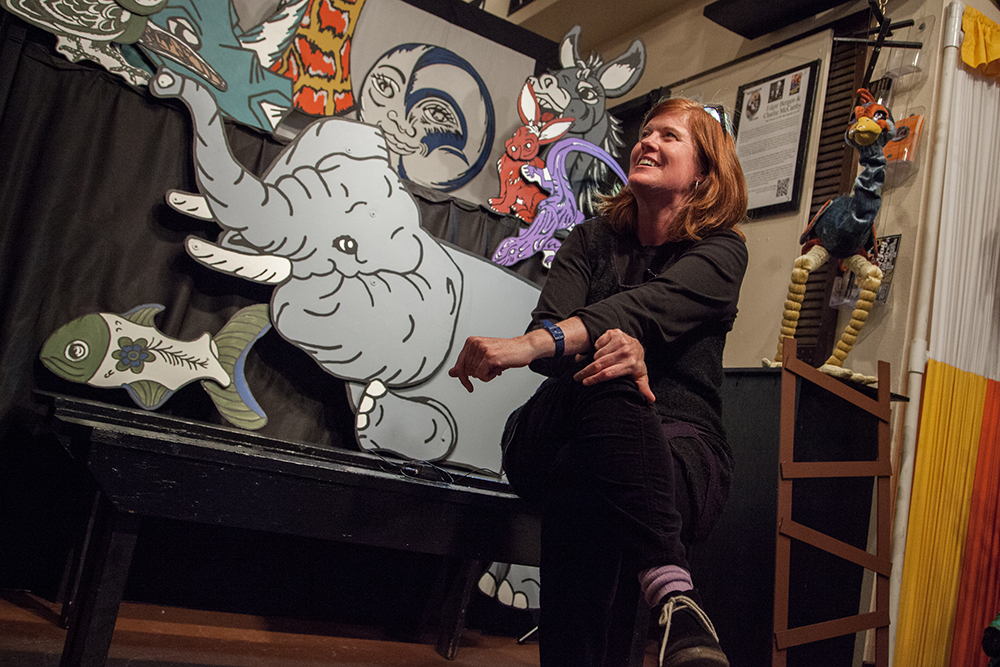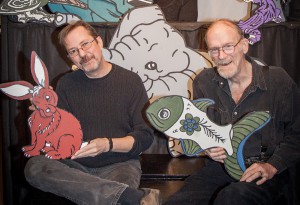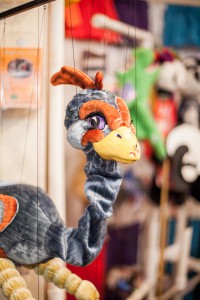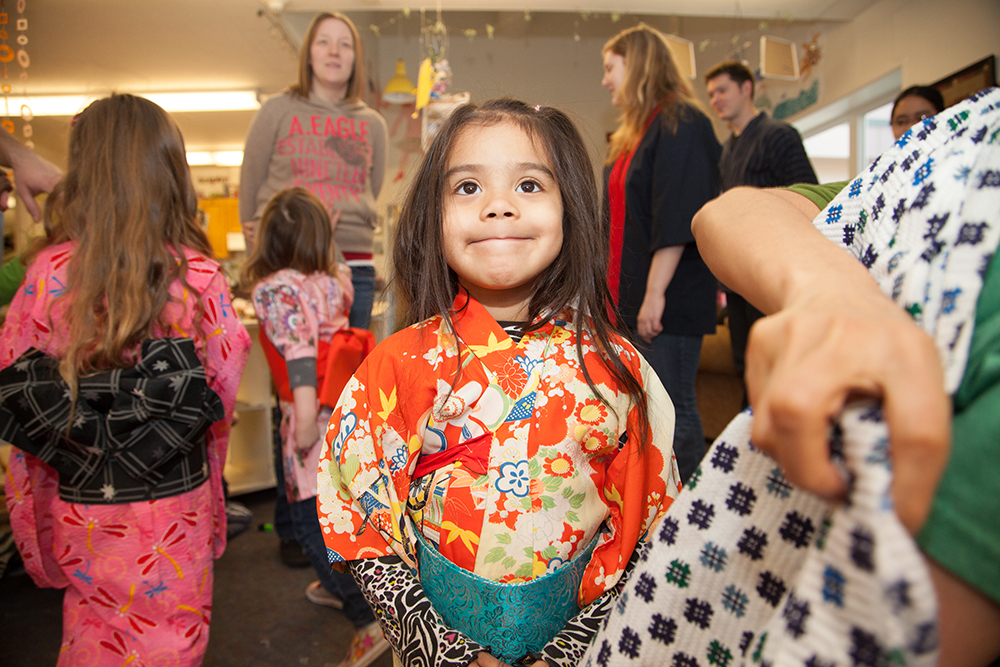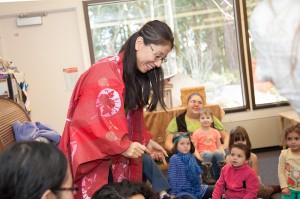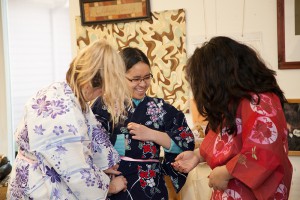Exceptional Faculty Award spotlight: The cultural ambassador
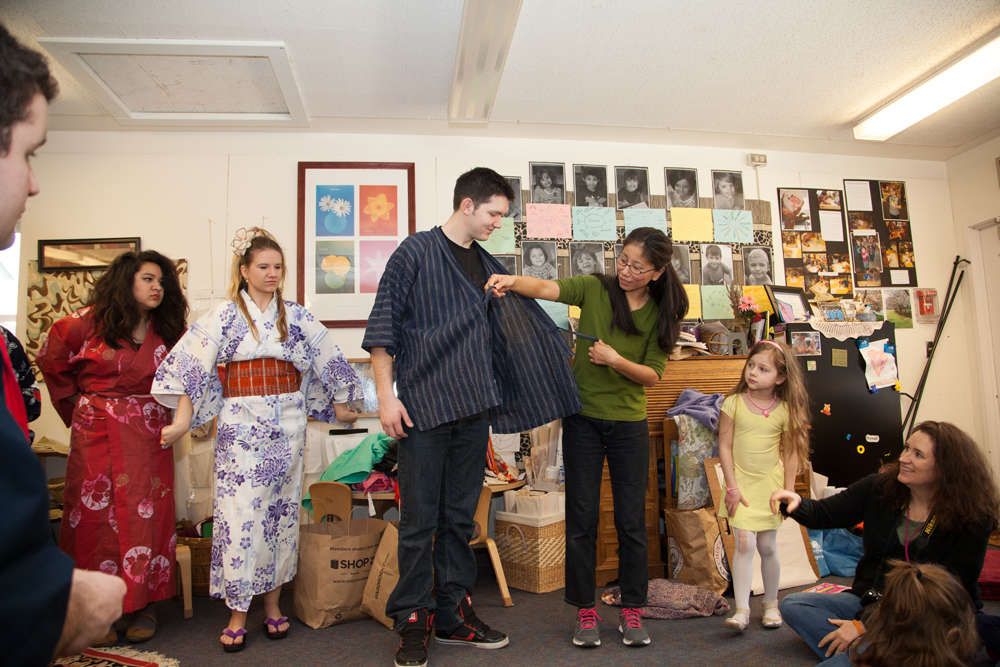
Professor Michiyo Okuhara helps members of the Japanese Club teach children in Clark’s Child & Family Studies program about kimono in advance of the 2014 Sakura Festival.
Professor Michiyo Okuhara is well aware that students who enroll in her Japanese courses probably have a limited understanding of her home country’s culture.
“They see it in pop culture—anime, manga, Hello Kitty—or sometimes traditional things like samurai,” she says. “In class we don’t focus on animation or comic books. We try to inspire them to learn the language, but also a more complete sense of Japanese culture.”
Ironically, for someone who now teaches Japanese, Okuhara originally came to the United States to learn English. “I studied English in Japan, but I wanted to use it and live it,” she explains. She earned her master’s degree at Portland State University, also getting a certificate to teach Japanese as a foreign language from that institution, and in 1999 began teaching at Clark.
“At the time, the program was very small,” she remembers. “I had four classes a year, just Japanese 101 to 103.”
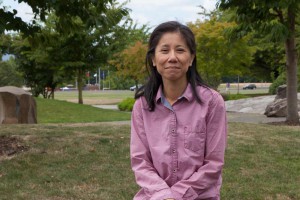 Today, thanks largely to Okuhara’s efforts, Clark offers two years of Japanese study. The college’s Japanese Club, which Okuhara helped found, is a vibrant and visible presence on the main campus. Okuhara has also been a key organizer of the college’s annual Sakura Festival, and has helped incorporate children from the college’s Child and Family Studies (CFS) program into the event—something she started after her own son, Anthony, graduated from the program’s daycare. (Okuhara’s daughter, Sakura, also has a Clark connection, having earned her associate here before transferring to Western Washington University.)
Today, thanks largely to Okuhara’s efforts, Clark offers two years of Japanese study. The college’s Japanese Club, which Okuhara helped found, is a vibrant and visible presence on the main campus. Okuhara has also been a key organizer of the college’s annual Sakura Festival, and has helped incorporate children from the college’s Child and Family Studies (CFS) program into the event—something she started after her own son, Anthony, graduated from the program’s daycare. (Okuhara’s daughter, Sakura, also has a Clark connection, having earned her associate here before transferring to Western Washington University.)
Okuhara, who received tenure in 2013, says she appreciates the partnerships she’s been able to develop at Clark. “We have great colleagues, great collaboration,” she says. “Like with CFS, and also International Programs are a great support for us. Or when we had a Japanese theater troupe visiting and needed a performance space; [drama professor] Gene Biby offered to let us use his stage. We’re a small department, but with other people’s help, we can do things we cannot do alone.”
This year, Okuhara received 2014-2015 Exceptional Faculty Award. “This instructor goes above and beyond, helping students outside of class and outside of her office hours,” wrote one student in her nomination. “She not only teaches the language, but she puts forth an extra energy to relate our lessons to Japanese culture. Her knowledge is not only shared to the class, but to the Clark community as well.”
Many of Okuhara’s former students return during Sakura to visit “Okuhara-sensei,” as they call her. Others write her from Japan to tell her about working there. Okuhara cherishes those stories, but feels that teaching world languages helps students even if they never leave their hometown.
“Not everyone gets to major in Japanese or work in Japan,” she says. “But part of what they learn is empathy for other cultures, and maybe patience with people from other countries who don’t speak English. I really enjoy seeing students learn. When they say Japanese is fun—that’s what I hope for.”
Learn about other recipients of the 2014-2015 Exceptional Faculty Awards.
Photos: Clark College/Jenny Shadley
